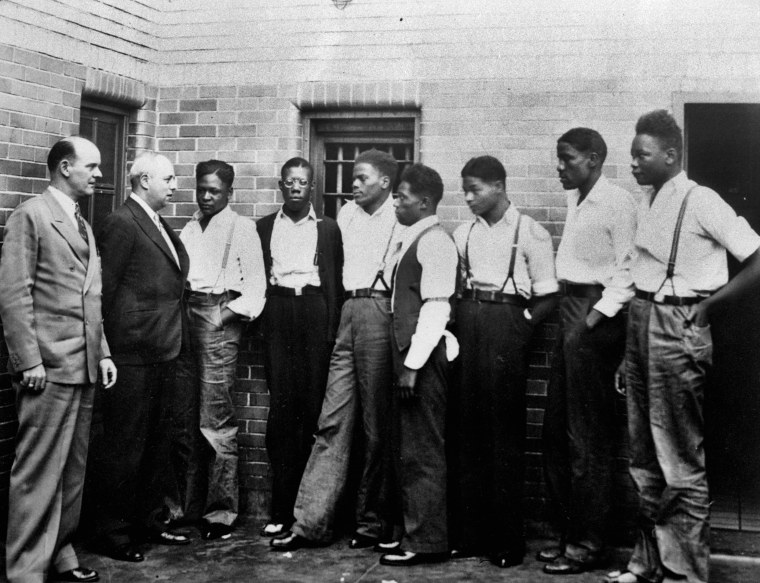Alabama granted posthumous pardons on Thursday to three of the Scottsboro Boys, a group of black teenagers whose fight against false charges that they raped two white women in 1931 helped spur the modern civil rights movement.
The three men exonerated by the Alabama Board of Pardons and Paroles - Charles Weems, Andy Wright and Haywood Patterson - were among nine youths accused of gang-raping the two women aboard a freight train in Alabama, and convicted by all-white juries in the town of Scottsboro.
The group's legal journey to fight the convictions and win new trials sparked protests over racial injustice and two landmark rulings by the U.S. Supreme Court.
"Today, we were able to undo a black eye that has been held over Alabama for many years," said Eddie Cook, the board's assistant executive director.
All of the Scottsboro Boys served prison time, but convictions against five of the teens were overturned and the charges dropped in 1937, according to the board.
A sixth man, Clarence Norris, got a pardon in 1976 from then-Gov. George Wallace.
Earlier this year, Alabama lawmakers passed legislation aimed at allowing the parole board to grant posthumous pardons to the Scottsboro Boys. The measure required that the cases eligible for pardons have elements of racial and social injustice, Cook said.
"In this case, it broke all of those elements of injustice," he said.
